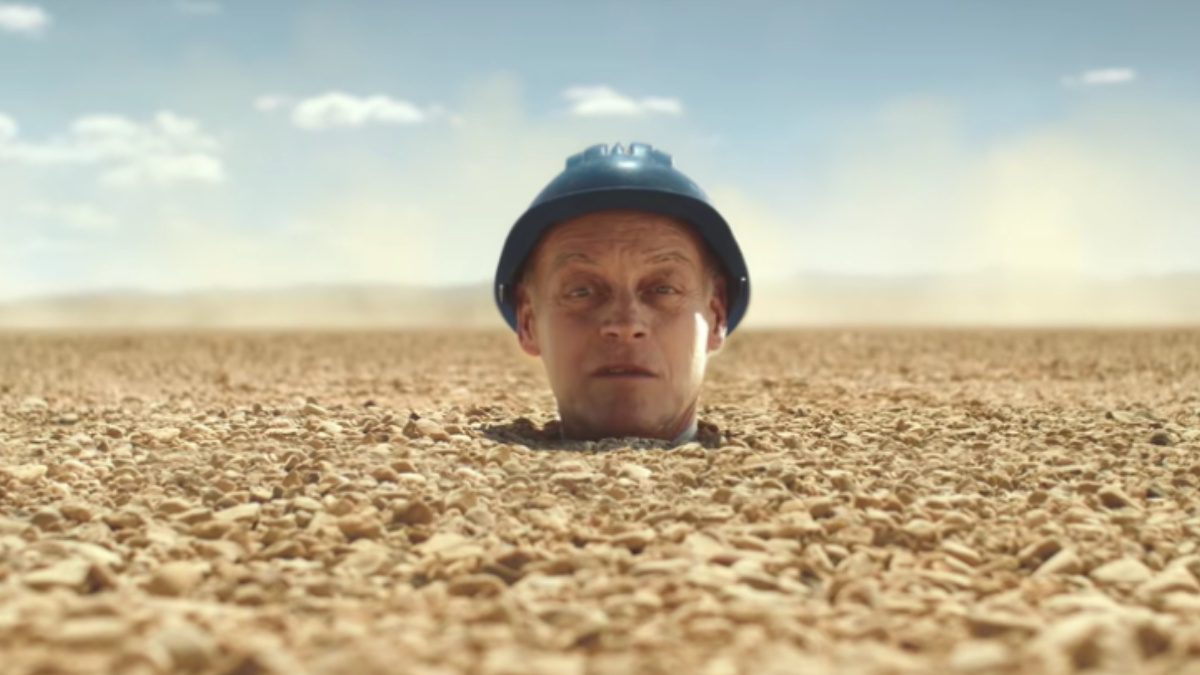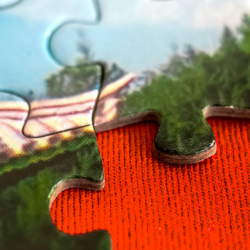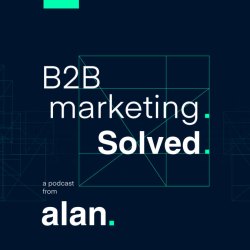All the offices I’ve worked in have thrived on laughter…
It’s how teams bond. It helps creativity flow. So why do so many B2B brands act like businesspeople daren’t raise so much as a smirk? As Emily Fairhead-Keen showed in her recent MediaCat article, funny communication makes brands easier to choose and remember. Funny adverts get shared; funny creates fame. If you’re thinking ‘yes, but B2B buying decisions are far too rational for all that,’ you might be surprised by this research from Google which found that B2B customers are ‘significantly more emotionally connected to their vendors and service providers’ than B2C consumers. The very notion of perfectly rational decision-making has been shown to be a myth by a growing body of evidence across neuroscience, psychology, and behavioural economics.
In fact, the need to feel and appear rational as a B2B buyer is driven by biases like risk aversion and the fear of making the wrong choice. In Rory Sutherland’s words, ‘You make the decision that’s easiest to defend, or least likely to come under attack.’
Does that mean B2B brands should avoid humour altogether? I don’t think so. Done well, humour can convey confidence: Here’s a brand that’s so sure of the value it provides that it’s not afraid to make you laugh. Of course this usually needs to be backed up with more straightforward stuff like case studies, testimonials, and competitor comparisons; being funny can be an effective way to get noticed and remembered, but you also need to arm buyers with information that shows you’re a defensible, non-career-threatening choice. With those caveats out of the way, let’s take a look at nine of the funniest B2B ads from the 21st century so far…
Nine funny B2B ad campaigns
Lenovo — Users Happen
Agency: Traction
Year: 2016
This campaign from Lenovo leverages humour to promote the ThinkPad to IT decision-makers. The key insight? These people love sharing ‘war stories’ about users and respect hardware that can handle a bit of abuse. The integrated campaign included a series of videos and tongue-in-cheek ‘Survival Guides’. It won a bunch of awards and helped drive a 250% lift in leads, and a 189% increase in lead quality score.
Adobe — Click, Baby, Click!
Agency: Goodby Silverstein & Partners
Year: 2013
Adobe launched their Marketing Cloud product in 2013, giving marketers a new way to track their campaigns and website performance. The insight? Bad data can lead to catastrophically stupid decisions. In this advert an encyclopaedia company mistakenly thinks their display ads are driving massive sales volumes, so they ramp up production in response. Whilst the very concept of physical encyclopaedias might be enough to make you LOL reading this in 2024, the ad’s punchline remains a useful reminder never to measure a digital campaign on clicks alone.
Ironically, I struggled to find solid performance data for the Click, Baby, Click! campaign, but a 25% increase in something (sales, hopefully!) is mentioned here.
Vistaprint — Your partner in an ever-changing world
Agency: CALLEN
Year: 2021
Vistaprint provides on-demand printing services to small businesses. In 2021, they ran their biggest ad campaign to date. The insight? Running a small business takes impressive resilience and rewards those with a knack for turning adversity into opportunity. One spot shows a lakeside burger bar pivoting to serving fish. One shows a hotelier embracing a hasty ‘haunted’ rebrand. And in the most enjoyably preposterous scenario, a yoga studio owner pivots to hot yoga when an asteroid crashes through her roof. You can watch three of the ads from this campaign here.
Slack — ‘So yeah, we tried Slack…’
Agency: Sandwich
Year: 2014
Here’s the description straight from Slack’s YouTube account to give you some context: ‘We tried to get Adam and the Sandwich video team to make us a video. They didn’t want to because “products like that never work”. Six months later, they were using it. Seven months later they were in love. A month after that they were shooting this video…‘ A little smug, perhaps, as setups go, but the smartly-paced, fourth-wall-breaking execution does a great job of explaining and selling the product.
Volvo Trucks — Live Tests
Agency: Forsman & Bodenfors
Year: 2014
You probably remember the Volvo ad where Jean-Claude Van Damme does the splits between two reversing trucks to demonstrate the stability and precision of these vehicles. But did you know that was part of a wider ‘live tests’ campaign?
In another ad from the series, a Volvo Trucks technician is buried up to his neck in a stony desert landscape, and remains unphased as a Volvo FMX truck drives right over him, demonstrating its ground clearance.
The campaign was rooted in two key insights: Truck drivers have a strong emotional connection with their trucks, and a constellation of other people also influence truck buying decisions (family, friends, colleagues, bosses, clients, and the businesses whose products they move). So it was important to create emotionally-resonant communications with wide appeal and built-in shareability. Without running on TV, the campaign generated earned media impressions worth $172.6m and was shared 8 million times.
Ajinomoto — Dinner with Goop
Agency: Edelman
Year: 2023
OK, this one is an example of funny PR rather than a funny advert. In short, Ajinomoto — a Japanese food and biotech company — wanted to dispel the myths suggesting that MSG is unhealthy. They hosted a dinner serving a feast of MSG-laced delights, invited a bunch of journalists, and also invited Gwyneth Paltrow, owing to her influence around ‘clean eating’ via her business, Goop. When Gwyneth (predictably) didn’t show up, that became the story. Ajinomoto earned major media coverage, incorrect claims on the Goop website were revised or removed, and, according to the video above, 24.3m more Americans now see MSG as ‘clean’.
Nextel — Dance Party
Agency: TBWA\Chiat\Day
Year: 2006
Nextel was a US telecomms company known for its push-to-talk mobile services, offering instant voice communication at the press of a button. In this ad, a small group of office workers are interrupted whilst dancing, in shirts and ties, to Push It by Salt-N-Pepa. It turns out they’re so absolutely on top of everything (thanks to Nextel, of course), that there’s really no need for them to be doing anything else.
Cisco — The Perfect Gift for Valentine’s Day
Agency: Unknown
Year: 2009
In 2009, Cisco took a humorous jab at Valentine’s Day commercialism by suggesting their super-high-end ASR 9000 router as the perfect gift, ‘Because nothing says ‘forever’ like up to 6.4 terabits per second.’
CCS McLays — Toilet Takeover
Agency:…Gasp!
Year: 2024
CCS McLays supplies consumables, packaging and catering supplies to retail businesses. They hadn’t considered offering a toilet area for sponsorship until …Gasp! approached them. With a copy-led execution from the mind of notoriously funny word-man Dave Harland, they took over the toilets at the Retail Week x The Grocer LIVE event. You can see more of this brilliant silliness here.
Whilst most of the examples in this article were video content, this campaign shows how media placement can be a core part of the joke, and how little budget you really need to get people smiling.
Is it time to take laughter seriously?
Humans have likely been laughing since before we had language. Robert Provine, a professor of psychology and neuroscience, and author of Laughter: An Investigation, argued that laughter is foundational to social behaviour. His research indicated that laughter acts as a kind of social glue, strengthening our relationships.
In B2B marketing, being funny can be an effective way to get attention, communicate product benefits, and build strong brand associations. It’s not the right approach for every situation, and it takes craft, and commitment, to get it right. But sometimes it’s the seemingly driest industries where a little levity stands out the most.
Featured image: Volvo Trucks – The Technician
































